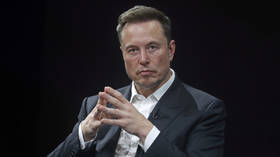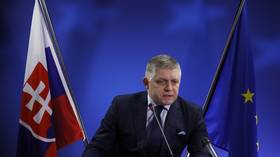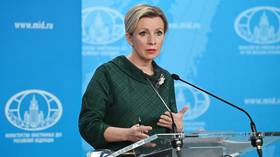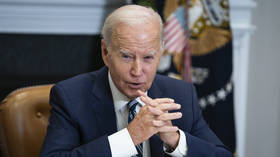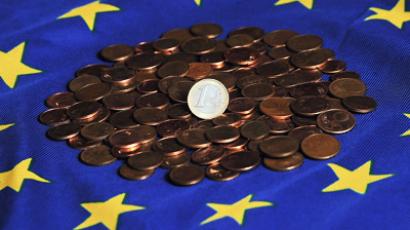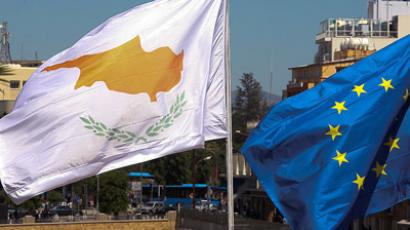No Deal: EU in discord as leaders fail to agree on €1 trillion budget
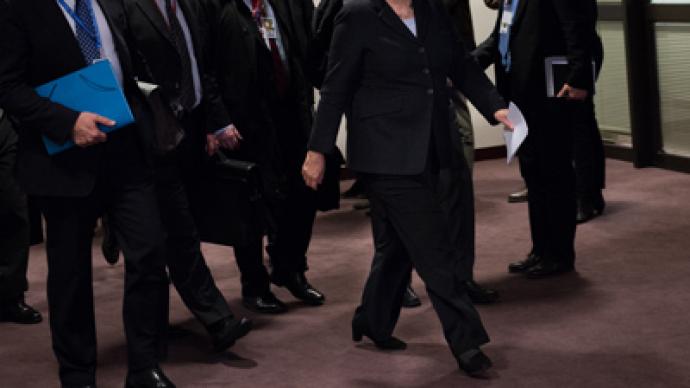
Fractious two-day talks on the new seven year European Union budget have collapsed in Brussels with sides no closer to agreement than before the start. The failure will cast a pall over the crisis-stricken union in the coming months.
“The budget deal wasn't good enough for Britain, but it also wouldn't good enough for a number of countries,” summarized UK Prime Minister David Cameron, one of the staunchest opponents of the EU-drafted document.He claimed the outline proposed by European Council President Herman Van Rompuy "didn't offer a single euro in savings" and was "insulting to taxpayers."German Chancellor Angela Merkel, who was skeptical about the outcome of the summit, said she is still “satisfied” with the results. She said Germany remains committed to overcoming differences, and that there is no reason to “force” a decision.“It is about reason coming before haste, and getting towards a strong base for the years ahead,” Merkel told a press conference. “We think that it will be possible to find an agreement early next year. We must – all 27 countries think this – find a way to overcome our differences.”The central budget, which is administered from Brussels and Strasbourg, is made up of contributions from the soon-to-be 28 member states (Croatia joins in January) was to come into force in 2014, and total nearly €1 trillion over seven years.But neither the precise size nor the allocation came close to finalization during the talks.The traditional battle line falls between the net contributors – the wealthier founding countries, and the newer, mostly Eastern European states, who have been receiving subsidies since their accession over the past two decades.But even inside those established blocs there was significant disagreement, as leaders of different political colors came to the summit with wildly varied agendas, often playing to domestic audiences as much as trying to reach a genuine compromise.
David Cameron leads a predominantly eurosceptic Conservative Party, which recently demanded that he ask the EU to lower its budget in the name of austerity and efficiency. Meanwhile, this year the UK has paid nearly €5 billion more into the European trough than it received.He arrived at the talks with a proposed figure of €886 billion, a real decrease from the current seven-year period. The number touted by Van Rompuy was €973 billion.The two sides never found a middle ground.Among Cameron’s rejected proposals was a raise of the retirement age of generously-compensated EU bureaucrats to 68 from 63, along with lower pensions."We're not going to be tough on budgets at home just to come here and sign up to an increase,” said Cameron, who has veto power on any budget draft.In his final press conference, the British Prime Minister boasted that his cause attracted several states to his side. Sweden and the Netherlands explicitly campaigned for cuts, while Germany tacitly backed Cameron’s stance.Cameron also tried to recruit some of the eurozone's economic strugglers to his cause, pointing out that just as the EU demands more belt-tightening from its members, its unprepared to curb its own largesse.
France’s Center-Left President Francois Hollande, who had publicly defended the EU budget, tried to strike a conciliatory note as talks fell apart."There were no threats, no ultimatums," he said in his final press conference.In turn, Italian Prime Minister Mario Monti accused the UK of hypocrisy, noting that it is the beneficiary of an exceptional tax rebate negotiated by Margaret Thatcher in the 1980s, saving it several billion euro a year in contributions.The current EU budget constitutes a little more than one per cent of GDP, but serves as a strong symbol of cooperation for recipients and contributors alike. A budget crisis will deliver another blow to the prestige of an institution that is overseeing an already troubled currency."There are so many competing interests between such diverse economies that there is no surprise that budget negotiations between 27 different countries do not work," Robert Oulds, from the Eurosceptic think tank the Bruges Group, told RT.The leaders will return to the negotiating table early next year.All sides can ill afford to let the talks lapse repeatedly. If no spending document is approved by the end of next year, the current budget will simply be adjusted by the rate of inflation. This will defeat Cameron’s pursuit of cuts, and simultaneously endanger European projects that require long-term investment guarantees.



